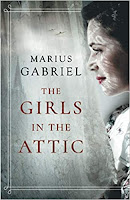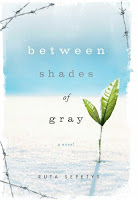January 27th—the anniversary of the liberation of Auschwitz-Birkenau—is designated by the United Nations General Assembly as International Holocaust Remembrance Day.
On this annual day of commemoration, nations and individuals are encouraged to honor the six million Jewish victims of the Holocaust and the millions of other victims of Nazism. The same UN resolution supports the development of educational programs to remember the Holocaust and to prevent further genocide.
In observance of this important anniversary, we are sharing a few of our favorite stories that help ensure we never forget.
Brandy's Picks
I've
read this book every year since first reading it as a sophomore in high
school. It is a reminder that we must speak up when we see something
that is wrong; our inaction can have a much larger effect than we ever
imagine. Elie survived the unimaginable and made it his life purpose to
ensure it would never happen again. He shared his story that we may
never forget what happened and to try to ensure it'll never happen
again.
With
each book, you become more and more involved with their stories. Although the characters overlap in the stories, the stories do not
overlap; they are each their own stand-alone stories of their own
individual experiences. These stories are not always easy to read, but
Morris did an amazing job of making sure they are not books you want to
put down. I listened to these books as audiobooks, and the narrators do
an amazing job of telling their stories; you definitely do not get hung
up on the narration and lose track of the book as you do in some
audiobooks.
Susan's Picks
This
book is the compelling biography of a young teen girl's courageous
story of bravery and survival from the Nazi atrocities of the
Holocaust.
A
wounded German soldier of the Reich is returned home to discover that
his mother is hiding two Jewish sisters in their attic. He is outraged
and feels his mother is a traitor by her act of mercy. He feels the
need to turn the sisters in to the Gestapo until he starts to get to
know them better and their unfortunate plight.
This
is a heart-wrenching love story about an Auschwitz-Birkenau prison camp
tattooist who falls in love with a young woman waiting in line for her
prison camp tattoo. This is another hope and survival tale based on
interviews the author made with the Holocaust survivor tattooist, Lale
Sokolov, and the Jewish woman he was determined to marry while trying to
survive the prison camp.
Tracy's Picks
Winner of the Pulitzer Prize, this visually and emotionally rich tale of the Holocaust reimagines the author’s parents’ deportation to Auschwitz and their post-war experiences in America in a world where the Nazis are represented as cats and Jews are symbolically portrayed as mice.
This is a truly lovely book; haunting and terribly sad because we know
it is based on true events, but also inspirational. Ruta Sepetys's writing
is fluid and emotionally evocative. With a few precise words, she is
able to make a powerful statement.
It is never overdone or cheaply sentimental. The first sentence grabbed
me, and I did not want to put this book down as Lina's story gradually
and painfully unfurled.
The novel is written in short chapters, which makes some of the
atrocities described a bit easier to digest. Scenes are not truly
graphic, but they are vividly and powerfully depicted. But, again, there
is a thread of hope and perseverance that runs throughout, as well as a
budding love story to provide balance. Also, there are flashbacks to
Lina's life in Lithuania before the deportation to provide respite and
clues to explain why Lina's family was targeted by the Soviets.
The characters, especially Lina, her mother, and a crotchety old man
who is with the family on the train and at the various work camps,
seemed real. Of course, several first-person accounts and interviews
where included in Sepetys's research. And the author's own family
history undoubtedly made this an intensely personal story.






